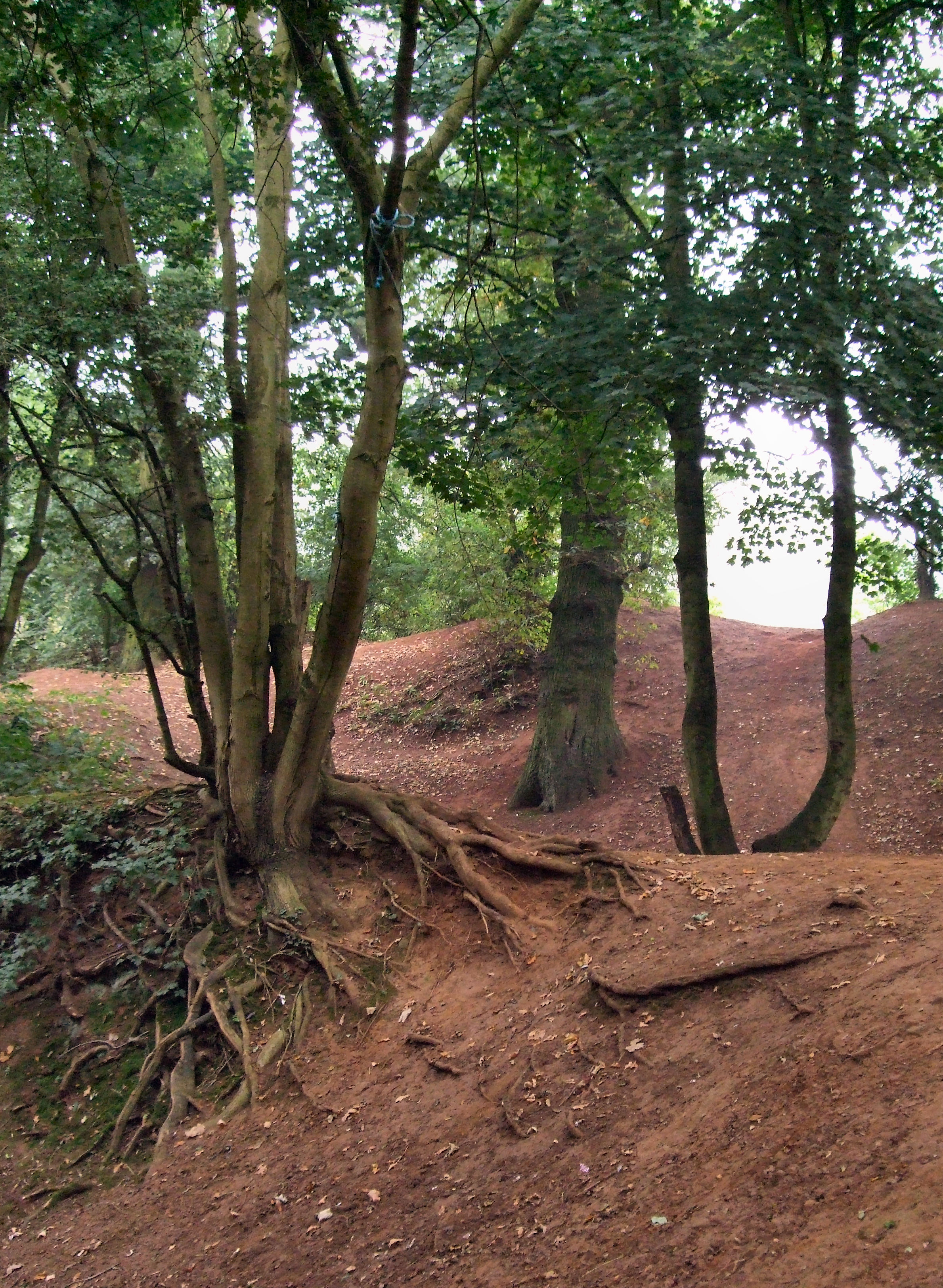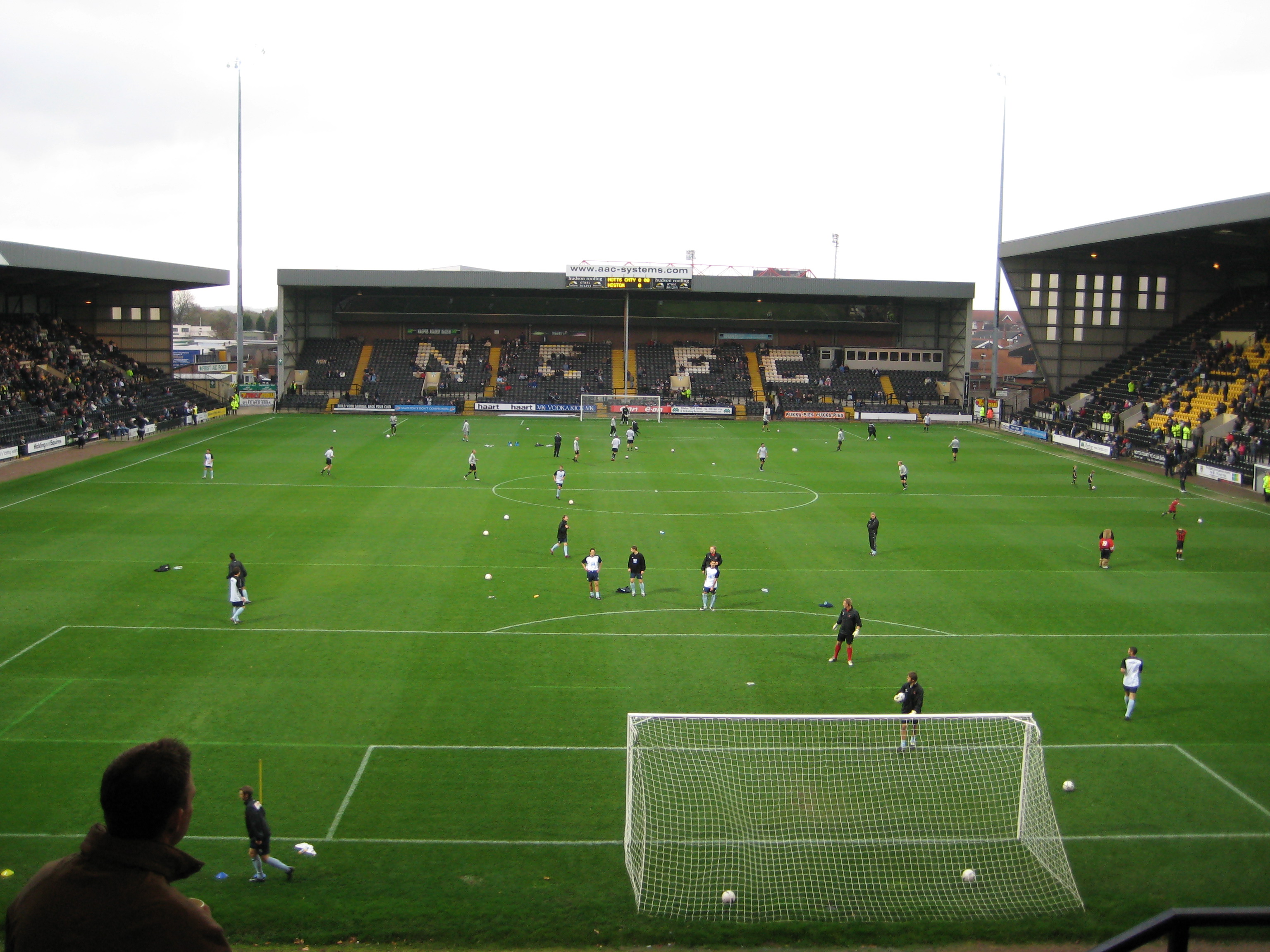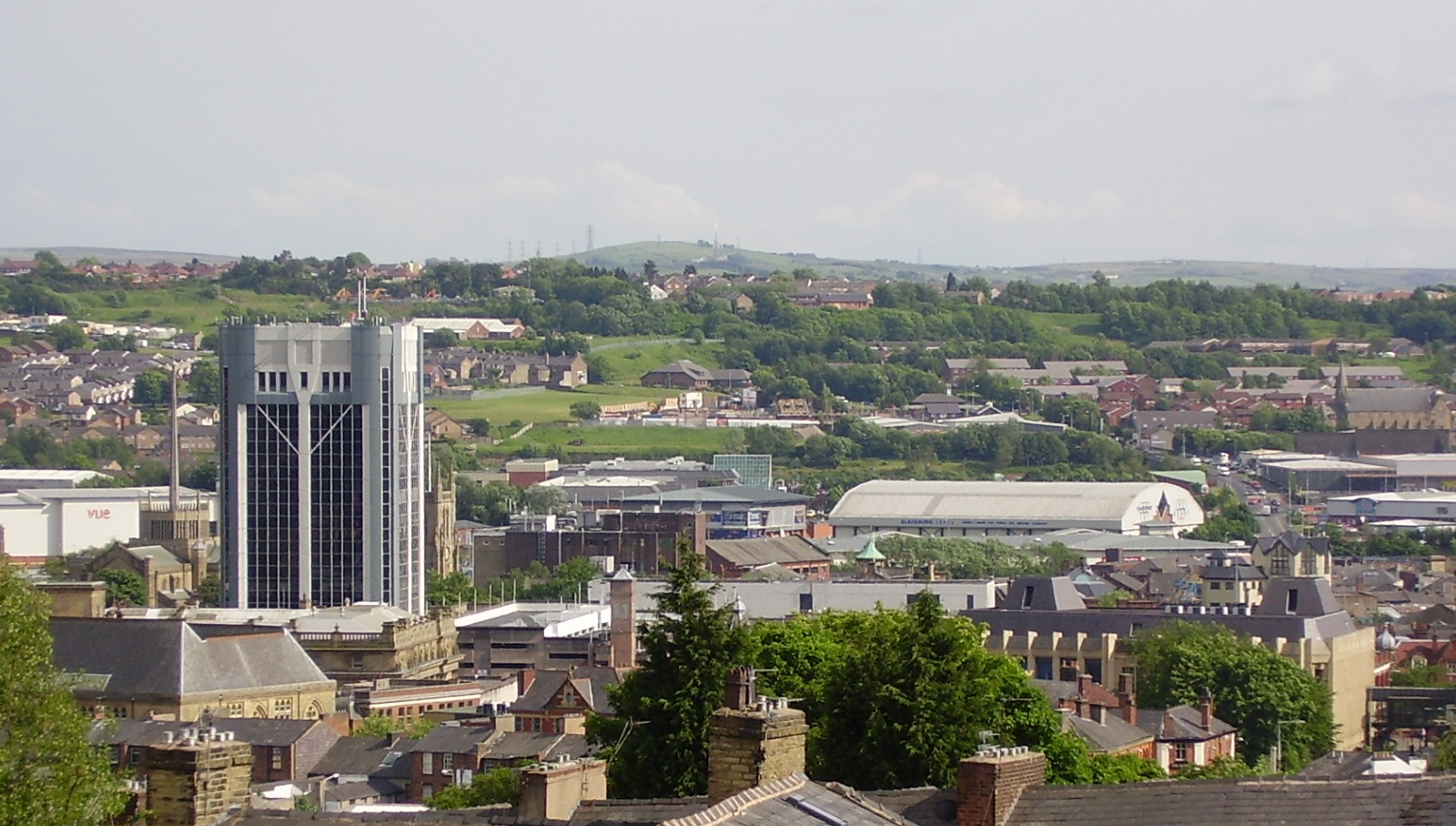|
Bob Jardine
Robert J. Jardine (1864–1941) was a Scottish footballer who played in The Football League for Derby County and Notts County. He is the first player to score five goals in a football league match when Notts County beat Burnley on 27 October 1888. Early career Two sources state Jardine was born in the Glasgow/Partick area of Central Scotland, one source stating the birth year as 1864. Having consulted the National Records of Scotland archive there was a Robert Jardine born in Partick in 1864 but with no middle name. Another source states he was Robert Joseph and born in Newcastle upon Tyne in 1865 but, on the balance of evidence, Jardine had no middle name. A Robert Jardine was married in the Manchester area in 1887, and Jardine was playing for Halliwell in the 1887–1888 season. Halliwell is a suburb of Bolton. The Robert Jardine who got married had no middle name. Therefore, a reasonable conclusion is Jardine was born in Partick with no middle name but adopted a name, mayb ... [...More Info...] [...Related Items...] OR: [Wikipedia] [Google] [Baidu] |
Partick
Partick ( sco, Pairtick, Scottish Gaelic: ''Partaig'') is an area of Glasgow on the north bank of the River Clyde, just across from Govan. To the west lies Whiteinch, to the east Yorkhill and Kelvingrove Park (across the River Kelvin), and to the north Broomhill, Glasgow, Broomhill, Hyndland, Dowanhill, Hillhead, areas which form part of the Glasgow#West End, West End of Glasgow. Partick was a Police burgh from 1852 until 1912 when it was incorporated into the city.Second City of The Empire: 1830s to 1914 from theglasgowstory.com. Retrieved 22 December 2011. Partick is the area of the city most connected with the Scottish Highlands, Highlands, and several Gaelic agencies, such as the Gaelic Books Council (Scottish Gaelic: ''Comhairle nan Leabhraichean'') are located in the area. [...More Info...] [...Related Items...] OR: [Wikipedia] [Google] [Baidu] |
Bolton
Bolton (, locally ) is a large town in Greater Manchester in North West England, formerly a part of Lancashire. A former mill town, Bolton has been a production centre for textiles since Flemish people, Flemish weavers settled in the area in the 14th century, introducing a wool and cotton-weaving tradition. The urbanisation and development of the town largely coincided with the introduction of textile manufacture during the Industrial Revolution. Bolton was a 19th-century boomtown and, at its zenith in 1929, its 216 cotton mills and 26 bleaching and dyeing works made it one of the largest and most productive centres of Spinning (textiles), cotton spinning in the world. The British cotton industry declined sharply after the First World War and, by the 1980s, cotton manufacture had virtually ceased in Bolton. Close to the West Pennine Moors, Bolton is north-west of Manchester and lies between Manchester, Darwen, Blackburn, Chorley, Bury, Greater Manchester, Bury and ... [...More Info...] [...Related Items...] OR: [Wikipedia] [Google] [Baidu] |
Scottish Men's Footballers
Scottish usually refers to something of, from, or related to Scotland, including: *Scottish Gaelic, a Celtic Goidelic language of the Indo-European language family native to Scotland *Scottish English *Scottish national identity, the Scottish identity and common culture *Scottish people, a nation and ethnic group native to Scotland *Scots language, a West Germanic language spoken in lowland Scotland *Symphony No. 3 (Mendelssohn), a symphony by Felix Mendelssohn known as ''the Scottish'' See also *Scotch (other) *Scotland (other) *Scots (other) *Scottian (other) *Schottische The schottische is a partnered country dance that apparently originated in Bohemia. It was popular in Victorian era ballrooms as a part of the Bohemian folk-dance craze and left its traces in folk music of countries such as Argentina ("chotis"Span ... * {{disambiguation Language and nationality disambiguation pages ca:Escocès ... [...More Info...] [...Related Items...] OR: [Wikipedia] [Google] [Baidu] |
1941 Deaths
Events Below, the events of World War II have the "WWII" prefix. January * January–August – 10,072 men, women and children with mental and physical disabilities are asphyxiated with carbon monoxide in a gas chamber, at Hadamar Euthanasia Centre in Germany, in the first phase of mass killings under the Action T4 program here. * January 1 – Thailand's Prime Minister Plaek Phibunsongkhram decrees January 1 as the official start of the Thai solar calendar new year (thus the previous year that began April 1 had only 9 months). * January 3 – A decree (''Normalschrifterlass'') promulgated in Germany by Martin Bormann, on behalf of Adolf Hitler, requires replacement of blackletter typefaces by Antiqua. * January 4 – The short subject ''Elmer's Pet Rabbit'' is released, marking the second appearance of Bugs Bunny, and also the first to have his name on a title card. * January 5 – WWII: Battle of Bardia in Libya: Australian and British troops de ... [...More Info...] [...Related Items...] OR: [Wikipedia] [Google] [Baidu] |
1864 Births
Events January–March * January 13 – American songwriter Stephen Foster ("Oh! Susanna", "Old Folks at Home") dies aged 37 in New York City, leaving a scrap of paper reading "Dear friends and gentle hearts". His parlor song " Beautiful Dreamer" is published in March. * January 16 – Denmark rejects an Austrian-Prussian ultimatum to repeal the Danish Constitution, which says that Schleswig-Holstein is part of Denmark. * January 21 – New Zealand Wars: The Tauranga campaign begins. * February – John Wisden publishes '' The Cricketer's Almanack for the year 1864'' in England; it will go on to become the major annual cricket reference publication. * February 1 – Danish-Prussian War (Second Schleswig War): 57,000 Austrian and Prussian troops cross the Eider River into Denmark. * February 15 – Heineken brewery founded in Netherlands. * February 17 – American Civil War: The tiny Confederate hand-propelled submarine ''H. L. Hunl ... [...More Info...] [...Related Items...] OR: [Wikipedia] [Google] [Baidu] |
Basford, Nottinghamshire
Basford is a northerly suburb of Nottingham, England, incorporated into the city in 1877. It gave its name to Basford Rural District, which existed from 1894 to 1974. The ward population at the 2011 census was 16,207, estimated at 16,779 in 2019. Next to Old Basford is New Basford, which is mainly Victorian. Basford lies close to the River Leen, a tributary of the River Trent. It is linked to Nottingham City Centre to the south and Hucknall and Bulwell to the north by the Nottingham Express Transit tram service. Toponymy The name appears as ''Baseford'' in the Domesday survey of 1086; Basford contains the Old English personal name ''Basa'', + ''ford'' (Old English), 'a ford', so 'Basa's ford'. History "Basford Parish lies principally in the vale of the Leen, where that river is augmented by two small streams called the Day Brook and White Moor Spring; but its eastern extremity rises to the lofty hills of Mapperley. It extends from one and a half to three miles north of No ... [...More Info...] [...Related Items...] OR: [Wikipedia] [Google] [Baidu] |
Northampton Town F
Northampton () is a market town and civil parish in the East Midlands of England, on the River Nene, north-west of London and south-east of Birmingham. The county town of Northamptonshire, Northampton is one of the largest towns in England; it had a population of 212,100 in its previous local authority in the 2011 census (225,100 as of 2018 estimates). In its urban area, which includes Boughton and Moulton, it had a population of 215,963 as of 2011. Archaeological evidence of settlement in the area dates to the Bronze Age, Romans and Anglo-Saxons. In the Middle Ages, the town rose to national significance with the establishment of Northampton Castle, an occasional royal residence which regularly hosted the Parliament of England. Medieval Northampton had many churches, monasteries and the University of Northampton, all enclosed by the town walls. It was granted a town charter by Richard I in 1189 and a mayor was appointed by King John in 1215. The town was also the sit ... [...More Info...] [...Related Items...] OR: [Wikipedia] [Google] [Baidu] |
Meadow Lane
Meadow Lane Stadium is a football stadium in Nottingham, England. It is the home ground of Notts County, who have played there since it opened in 1910. The stadium was also home to Notts County Ladies F.C. from 2014 until 2017. It currently has an all-seated capacity of 18,816 for National League games, although its maximum capacity is 20,229. The record attendance is 47,310, who watched Notts lose 1–0 to York City in the FA Cup Sixth Round on 12 March 1955. The highest all-seater attendance is 17,615, for the League Two play-off semi-final against Coventry City on 18 May 2018. Meadow Lane lies just away from the City Ground, home of Nottingham Forest. Divided by the River Trent, the two grounds are the closest in England and second-closest in the United Kingdom after Dundee and Dundee United. The Trent End of the City Ground is visible from parts of the Jimmy Sirrel stand and the Spion Kop. The stadium also hosts the men's and women's football in the Varsity Series – ... [...More Info...] [...Related Items...] OR: [Wikipedia] [Google] [Baidu] |
Midland Football League (1889)
The Midland Football League was a semi-professional football league in England. It acted as a feeder league to the Football League for many years before merging with the Yorkshire League in 1982 to form the Northern Counties East League. History Founded in 1889, only one year after the Football League, the Midland League was the second league for professional clubs to be formed. Eleven clubs participated in the first season, 1889–90, four of whom (including the first champions, Lincoln City) would go on to achieve Football League status. The eleven founder members came from six counties. In the early days of the Midland League, a number of the champion clubs were elected to the Football League, and in return, League clubs who failed to be re-elected were often placed in the Midland League. Lincoln City and Doncaster Rovers both had a number of spells in both the Football League and Midland League. With the larger professional clubs becoming stronger, they looked to place the ... [...More Info...] [...Related Items...] OR: [Wikipedia] [Google] [Baidu] |
Football Alliance
The Football Alliance was an association football league in England which ran for three seasons, from 1889–90 to 1891–92. History In 1888, the same year the Football League was founded, The Combination was established by clubs who had been excluded from the Football League, initiated by Crewe Alexandra secretary J. G. Hall, and announced at the Royal Hotel in Crewe. However, while the Football League quickly proved a success, the Combination lacked central organisation, with poor planning and unfulfilled fixtures, and failed to complete its first season, finishing in April 1889 without a winner. Foundation Several of The Combination founders met after the final Combination board meeting to discuss a new combination; four of those who agreed in principle to form a new league, South Shore, Burslem Port Vale, Notts Rangers, and Derby Midland, did not in fact do so, while Grimsby Town, originally considered too distant, was brought back into the fold. The remaining clubs th ... [...More Info...] [...Related Items...] OR: [Wikipedia] [Google] [Baidu] |
Preston North End F
Preston is a place name, surname and given name that may refer to: Places England *Preston, Lancashire, an urban settlement **The City of Preston, Lancashire, a borough and non-metropolitan district which contains the settlement **County Borough of Preston, a local government district containing the settlement from 1835 to 1974 **Preston (UK Parliament constituency) **Preston railway station in Preston, Lancashire **The PR postcode area, also known as the Preston postcode area **Preston Urban Area, the conurbation with Preston at its core *Preston, Devon (in Paignton) *Preston, Teignbridge, in Kingsteignton parish *Preston, Dorset *Preston, East Riding of Yorkshire, near Kingston upon Hull *Preston, Cotswold, Gloucestershire *Preston, Forest of Dean, Gloucestershire *Preston, Hertfordshire *Preston, London, near Wembley **Preston (ward) *Preston, Northumberland, the location of Preston Tower, Northumberland, Preston Tower *Preston, Rutland *Preston, Shropshire, in Upton Magna ... [...More Info...] [...Related Items...] OR: [Wikipedia] [Google] [Baidu] |
Blackburn Rovers F
Blackburn () is an industrial town and the administrative centre of the Blackburn with Darwen borough in Lancashire, England. The town is north of the West Pennine Moors on the southern edge of the Ribble Valley, east of Preston and north-northwest of Manchester. Blackburn is the core centre of the wider unitary authority area along with the town of Darwen. It is one of the largest districts in Lancashire, with commuter links to neighbouring cities of Manchester, Salford, Preston, Lancaster, Liverpool, Bradford and Leeds. At the 2011 census, Blackburn had a population of 117,963, whilst the wider borough of Blackburn with Darwen had a population of 150,030. Blackburn had a population of 117,963 in 2011, with 30.8% being people of ethnic backgrounds other than white British. A former mill town, textiles have been produced in Blackburn since the middle of the 13th century, when wool was woven in people's houses in the domestic system. Flemish weavers who settled in the ... [...More Info...] [...Related Items...] OR: [Wikipedia] [Google] [Baidu] |
.jpg)





